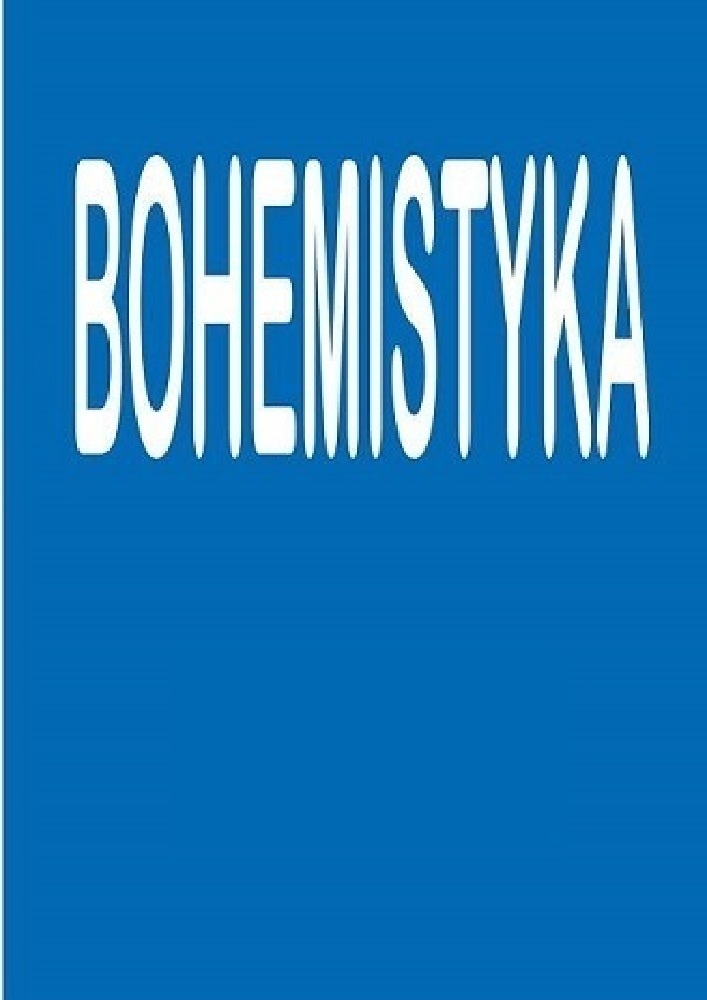Abstract
The topics of pilgrimage, wandering or roam which were the main subject of the romantic anthropological ideas often returns in Czech literature. On the one hand these topics are included into the resources of universal motifs of the Western European culture, on the other hand they represents an important strand in the contemporary discussion on the modern conditio humana. The repetition of the nomadic topics, based on the advanced chain of the intertextual connections and assumed the preliminary understanding with the reader, who is knowledgeable in a world of the prearranged meanings and ways of representations of the figure of wanderer/pilgrim/ vagrant, is an argument of the long lasting field of imagination which is connected with this figure. It i also an suitable tool for the research of the journey as a symbol of human life.
References
Auerbach E., 1998, Mimesis. Zobrazení skutečnosti v západoevropských literaturách, přel. M. Žilina, R. Preisner, V. Kafka, Praha: Mladá fronta.
Bauman Z., 1994, Dwa szkice o moralności ponowoczesnej, Warszawa: Instytut Kultury.
Deleuze G., Guattari F., 2015, Tysiąc plateau, tłum. B. Bednarek, Warszawa: Bęc Zmiana.
Hodrová D., 1989, Hledání románu. Kapitoly z historie a typologie žánru, Praha: Československý spisovatel.
Hodrová D., 1993, Román zasvěcení, Jinočany: H&M.
Hrbata Z., 1999, Romantismus a Čechy. Témata a symboly v literárních a kulturních souvislostech, Jinočany: H&M.
Hrbata Z., Procházka M., 2005, Romantismus a romantismy. Pojmy, proudy, kontexty, Praha: Karolinum.
Kierkegaard S., 1968, The Concept of Irony, with Constant reference to Socrates, transl. L.M. Capel, Bloominton.
Kledzik E., 2014, Pochwała imagologii. Rozważania o obrazie Romów w literaturze polskiej XX wieku, [w:] Historie, społeczeństwa, przestrzenie dialogu. Studia postzależnościowe w perspektywie porównawczej, red. H. Gosk, D. Ko- łodziejczyk, Kraków: Universitas, s. 477–496.
Mácha K.H., 2000, Cikáni, Praha: Otakar II.
Mácha K.H., 1972, Dobrou noc, ó lásko. Výbor z próz, Praha: Československý spisovatel.
Mácha K.H., 2010, Máj, [in:]: D. Prokop, Kniha o Máchově Máji, Praha: Academia, s. 7–36.
Maffesoli M., 2002, O nomádství. Iniciáční toulky, přel. J. Fulka, Praha: Prostor.
Marečková D., Petrů E. (red.), 1984, Rytířské srdce majíce (Česká rytířská epika 14. století), Praha: Odeon.
Momro J., 2009, Granice i marginesy nowoczesności. Wokół teorii badań nad romantyzmem, [w:] Romantyzm i nowoczesność, red. M. Kuziak, Kraków: Universitas, s. 15–56.
Mráz B., 1998, Karel Hynek Mácha: Hrady spatřené, Praha: Panorama.
Soukup D., 2013, »Cikáni« a česká vesnice. Konstrukty cizosti v literatuře 19. století, Praha: Nakladatelství Lidových novin.
Šmaus M., 2005, Děvčatko, rozdělej ohníček (Na cikňi na bari, čarav tro voďori), Praha: Odeon.
Wieczorkiewicz A., 1996, Wędrowcy fikcyjnych światów. Pielgrzym, rycerz i włóczęga, Gdańsk: słowo/obraz terytoria.
Yi-Fu Tuan, 1987, Przestrzeń i miejsce, przeł. A. Morawińska, Warszawa: Państwowy Instytut Wydawniczy.
Zapletal Z., 2001, Půlnoční běžci, Brno: Petrov.
Zeyer J., 1983, Román o věrném přátelství Amise a Amila, Praha: Odeon.
Zeyer J., 1917, Spisy Julia Zeyera XIX, Praha: Nakladatelství české grafické společnosti.
License
Copyright (c) 2018 Anna Gawarecka

This work is licensed under a Creative Commons Attribution-NonCommercial-NoDerivatives 4.0 International License.




